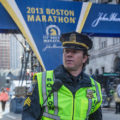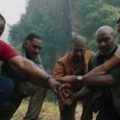
Spike Lee directs one of the most powerful films to date on racial discrimination. The images are even more impactful because the story is based on a true undercover investigation in the 1970’s. This film is Important because the same kind of hatred is even more mainstream today than it’s been in decades. This is Spike Lee’s first studio film in 10 years and he hits a nerve with scenes he creates showing tense racial conflict.
The director peels back the layers of racism within institutions and elsewhere that have still not changed. Spike Lee reinforces the activism, then and now, with archival footage. He includes newscasts, movies, (including clips from Birth of a Nation), rallies and protests, all the way up to the White Nationalist march in Charlottesville that became so violent.
The film produced by Jordan Peele (Get Out!) is based on the book by Ron Stallworth titled “Black Klansman: Race, Hate, and the Undercover Investigation of a Lifetime.” Stallworth was the first Black officer hired on the Colorado Springs Police Force in the late 1970’s. As impossible as it sounds, he was a African-American man who actually applied to join the Ku Klux Klan, and got his membership card from KKK’s Grand Wizard, David Duke, himself!
The film grabs you from the opening scene, It’s the incredible pull back showing Scarlett O”Hara (Vivien Leigh) searching through thousands of wounded soldiers after The Battle of Atlanta. The camera then pans up to a Confederate flag and continues with scenes showing battles today over race.
John David Washington (HBO’s Ballers) plays Stallworth, who the actor did get to meet. Washington is the son of Denzel Washington. He proves here that he has his own acting chops and gets the drama as well as the comedy right. He shows the pride Stallworth takes in being Black when he is shaping his rather generous 70’s Afro, as well as his commitment to be the best cop he could be. Later he shows his comedic talent playing on the phone with the Klan in what are very like comedy skits. This is serious business, but Spike Lee shows how ludicrous racial discrimination and the situation is. This is satire taken to a new level. It’s fascinating to see Stallworth manipulating Duke, (played with evil boyish charm by Topher Grace) on a split screen, sometimes with his Police partners trying to stifle laughter in the background. The film shows how it’s funny and scary at the same time.
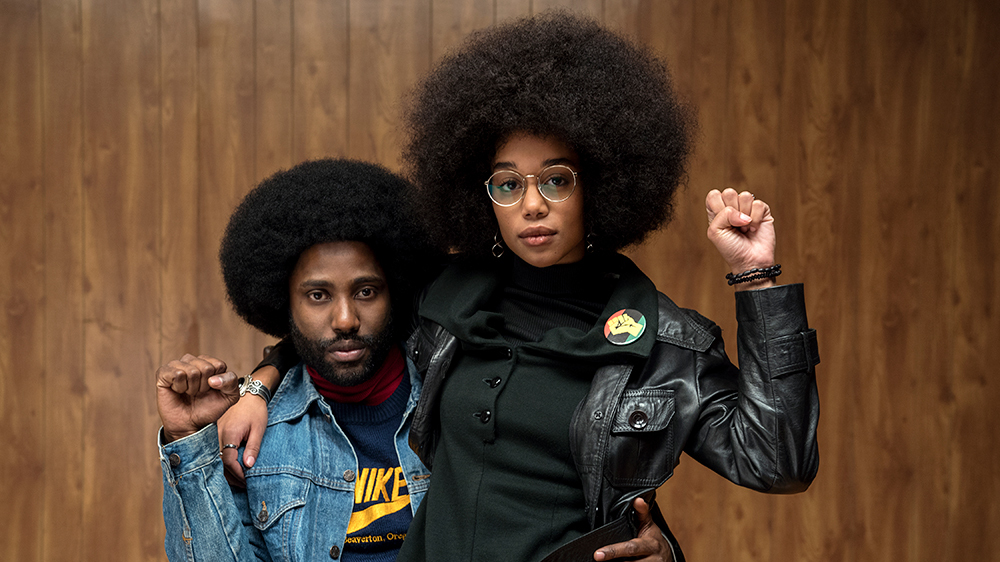
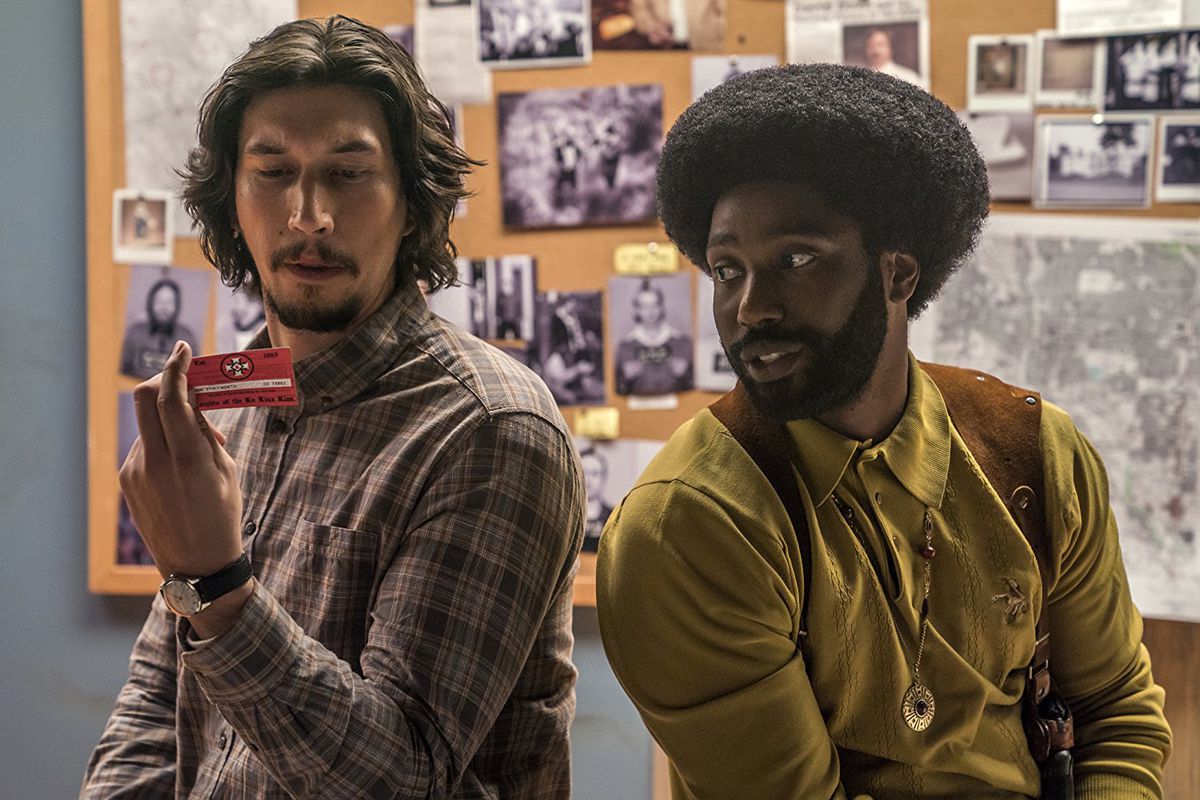
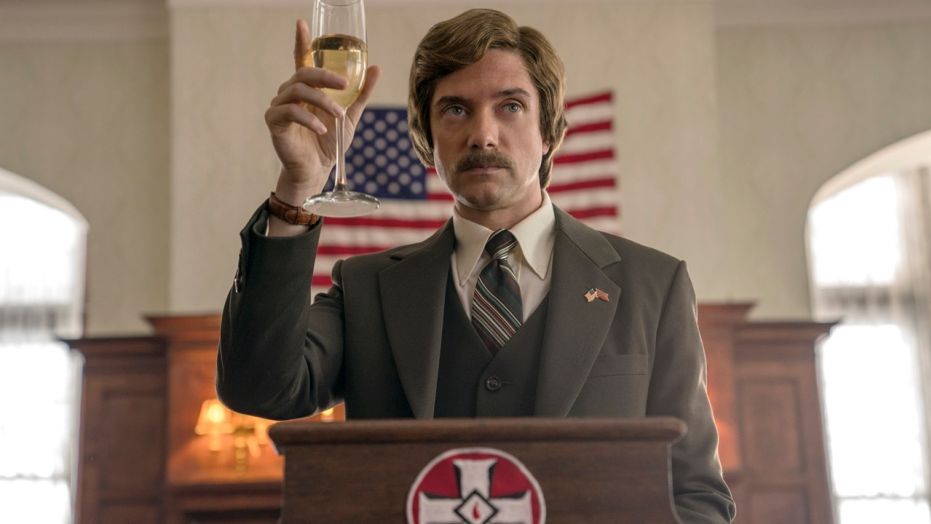
But make no mistake, this becomes a life or death situation in scenes throughout, with Klansmen coming dangerously close to figuring out they’ve been played. Adam Driver plays Flip Zimmerman (referred to as Chuck in the book). He’s a fellow police detective who’s assigned to partner with Stallworth. When it becomes necessary for Stallworth to start meeting with the Klan, Flip has to fill in as the White face wearing a new fangled wire to send his conversations back to a truck to be recorded.
Flip is Jewish, though not religious, but it still adds to his own risk of being found out by the Klan. Driver is so convincing in being apprehensive but committed in this role, especially in the target practice scene where he’s almost too good a shot for the KKK. Plus, the scene where the nasty Felix (Jasper Pääkkönen) wants to give him a lie detector test by baring his chest, among other things, is chilling.
Stallworth gets involved with a striking young campus activist in this film named Patrice Dumas (Laura Harrier- Spider-man: Homecoming). He follows her activity, but caring more for her safety as well. The scene with Harry Belafonte as Jerome Turner, as a Black spiritual leader and activist, is so beautifully shot. Canadian/American Cinematographer Chayse Irvin captures the young Black faces so artistically, zooming softly in and out from different angles with dark backgrounds. It’s a very moving scene that helps illuminate the reasons for their activism. They say “If not now, then when. If not You, then who. Black Power.”
Lee uses music from that era including Ball of Confusion by the Temptations, Say It Loud, I’m Black and I’m Proud by James Brown, Freedom Ride and Mary Don’t You Weep by Prince to set the tone.
The story of how Stallworth and Flip worked the investigation is compelling. Spike Lee, Charlie Wachtel David Rabinowitz, and Kevin Willmott have written a tense drama that draws you into being concerned for those trying to uncover the extreme racism in the KKK at their own peril. Spike Lee makes his points without hitting you over the head. The film is well paced interweaving footage of real events with Stallworth’s story. By the end of this movie, it’s hard not to get emotional reacting to actual news footage of protests and injustice still happening today. We found the story of Stallworth infiltrating the Klan intriguing, and with Spike Lee’s additions to it, it’s a must see.
Focus Features 2 hours 12 minutes R Reviewed August 7, 2018

